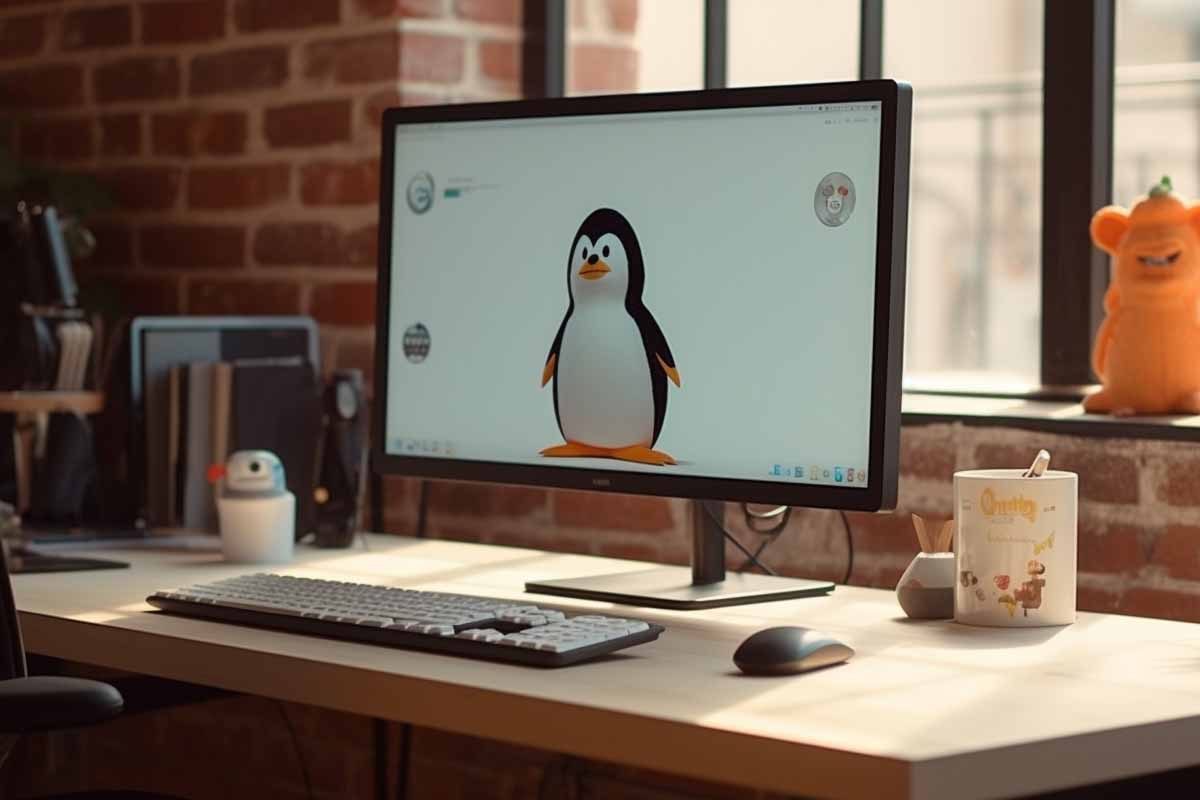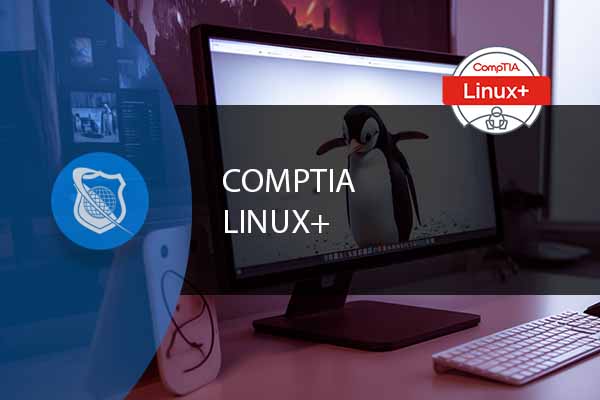In today’s rapidly evolving tech landscape, certifications are more important than ever. They serve as a benchmark for your skills, increase your marketability in the job market, and can even significantly boost your earning potential. Among the myriad of certifications available, one that has consistently proven its worth is the Linux Plus Certification. With over two decades of hands-on experience in the IT industry, I’ve seen firsthand how this certification can be a game-changer for anyone aspiring to excel in the world of Linux and open-source technologies. In this comprehensive blog post, we’ll delve into 10 compelling reasons why you should seriously consider obtaining your Linux Plus Certification. Whether you’re a seasoned IT professional or someone just starting out, this certification offers benefits that are too significant to ignore.
The Credibility of Linux Plus Certification
What is Linux Plus Certification?
Linux Plus Certification is more than just a credential; it’s a globally recognized standard that validates your Linux skills. This certification covers a broad spectrum of essential Linux topics, including but not limited to system administration, networking, and security. What sets Linux Plus apart from other certifications is its distribution-agnostic approach. This means that the skills you acquire are not tied to a specific Linux distribution, making you a versatile and adaptable IT professional. This is particularly beneficial in today’s diverse tech environment where different Linux distributions are used for various applications.
Who Offers the Linux Plus Certification?
The Linux Plus Certification is offered by CompTIA, a leading provider of vendor-neutral IT certifications. CompTIA has a long-standing reputation for developing rigorous exams that are designed to test real-world skills. Their certifications are developed through a meticulous process involving industry experts, ensuring that the content is both relevant and challenging. This level of quality assurance adds an extra layer of credibility to the Linux Plus Certification, making it a highly respected credential in the IT community.
CompTIA Linux+
Unlock the power of Linux with our comprehensive online course! Learn to configure, manage, and troubleshoot Linux environments using security best practices and automation. Master critical skills for the CompTIA Linux+ certification exam. Your pathway to success starts here!
The Importance of Linux in Modern IT
Why Linux?
Linux is not just another operating system; it’s the backbone of the internet, data centers, and a multitude of enterprise-level applications. Its open-source nature allows for incredible flexibility and customization, making it a preferred choice for both startups and Fortune 500 companies alike. But what really sets Linux apart is its community-driven development model, which ensures that it is continually updated and improved by a global network of developers.
With Linux skills under your belt, you open doors to a wide range of career opportunities. Whether it’s system administration, cybersecurity, or DevOps, Linux is often a required skill or at least a highly desirable one. Moreover, Linux is the go-to platform for cloud computing, big data storage, and even emerging technologies like the Internet of Things (IoT). Therefore, having a Linux Plus Certification not only validates your skills in Linux but also makes you a more marketable candidate in a variety of IT roles.
10 Reasons Why You Need Linux Plus Certification
1. Skill Validation
Linux Plus Certification provides a benchmark for your skills. It proves to employers that you have the knowledge and expertise to manage Linux-based systems effectively.
2. Career Advancement
Certifications are often tied to career progression. With a Linux Plus Certification, you’re more likely to be considered for promotions and leadership roles within your organization.
3. Increased Earning Potential
According to various salary surveys, Linux professionals tend to earn more than their non-certified counterparts. The certification can be a significant factor in negotiating a higher salary.
4. Networking Opportunities
Being certified connects you to a community of like-minded professionals. Networking within this community can lead to new job opportunities and professional growth.
5. Vendor-Neutral Skills
As mentioned earlier, Linux Plus from CompTIA is a vendor-neutral certification. This means the skills you acquire are transferable across different Linux distributions, making you a versatile IT professional.
6. Staying Updated
The Linux Plus Certification requires periodic renewal, ensuring that you stay updated with the latest trends and technologies in the Linux ecosystem.
7. Global Recognition
The certification is recognized globally, making you eligible for job opportunities not just in your home country but around the world.
8. Competitive Edge
In a job market saturated with IT professionals, a Linux Plus Certification can set you apart from the competition.
9. Employer Benefits
Companies often prefer certified professionals as they bring credibility and skills to the team, reducing the time and resources spent on training.
10. Personal Satisfaction
Last but not least, the sense of achievement and confidence gained from earning a Linux Plus Certification is immeasurable. It’s a testament to your dedication and hard work in mastering Linux.
CompTIA Linux+
Unlock the power of Linux with our comprehensive online course! Learn to configure, manage, and troubleshoot Linux environments using security best practices and automation. Master critical skills for the CompTIA Linux+ certification exam. Your pathway to success starts here!
How to Prepare for Linux Plus Certification
Preparing for the Linux Plus Certification is a journey that requires a well-thought-out plan, dedication, and the right resources. Below are some key strategies that can help you succeed.
Study Resources
When it comes to study resources, there’s no one-size-fits-all approach. The market is flooded with a plethora of options ranging from textbooks, online courses, video tutorials, to interactive labs. Here are some pointers to consider:
- Textbooks: If you’re someone who prefers traditional learning, textbooks like “CompTIA Linux+ Study Guide” can be invaluable. They offer in-depth explanations and often come with practice questions.
- Online Courses: Platforms like Udemy, Coursera, and Linux Academy offer comprehensive courses that are often accompanied by video lectures, quizzes, and peer interaction. These courses are great for those who prefer a structured learning environment.
- Interactive Labs: Some people learn best by doing. Interactive labs simulate real-world scenarios, allowing you to practice the skills you’ve learned in a safe environment.
Choose the resources that best suit your learning style and make sure to stick with them throughout your preparation.
Practice Exams
Taking practice exams is not just a way to test your knowledge; it’s a strategy to understand the exam pattern, the types of questions you’ll face, and the areas where you need improvement. Here’s how to make the most of practice exams:
- Timed Practice: Always practice under timed conditions to simulate the actual exam environment. This will help you manage your time more effectively during the real exam.
- Analyze Results: Don’t just check your scores. Go through each question to understand why you got it wrong and how you can improve.
- Repeat: Consistency is key. The more you practice, the more confident you’ll become.
Hands-On Experience
In the world of Linux, theoretical knowledge is not enough; practical experience is crucial. Here’s how you can gain hands-on experience:
- Set Up a Home Lab: Use virtual machines or old hardware to set up your own Linux lab. Experiment with different distributions, set up servers, and troubleshoot issues.
- Real-world Projects: Try to implement small projects that solve real-world problems. This could be as simple as setting up a file server or as complex as configuring a multi-node Kubernetes cluster.
- Contribute to Open Source: This not only gives you practical experience but also connects you with a community of experts who can provide guidance and mentorship.
CompTIA Linux+
Unlock the power of Linux with our comprehensive online course! Learn to configure, manage, and troubleshoot Linux environments using security best practices and automation. Master critical skills for the CompTIA Linux+ certification exam. Your pathway to success starts here!
Conclusion
The Linux Plus Certification is not just a piece of paper; it’s a validation of your skills, a badge of your dedication, and a catalyst for your career growth. With the ever-growing importance of Linux in today’s IT landscape, this certification is not merely an option—it’s a necessity. Having spent over two decades in the field, I can unequivocally vouch for the immense value this certification can add to your professional life. It’s a long-term investment that pays off in manifold ways, from opening doors to higher-paying jobs to setting you apart in a competitive job market. So, what are you waiting for? Embark on your Linux Plus Certification journey today and take a giant leap in your career.
Linux+ Certification FAQ : Everything You Need to Know
Why should I consider getting a Linux+ Certification?
The Linux+ Certification is a valuable asset for IT professionals seeking to validate their Linux operating system skills. It demonstrates a comprehensive understanding of Linux administration, including system configuration, command line mastery, and troubleshooting. This certification is recognized industry-wide, making it an important credential for career advancement in IT roles that require Linux expertise.
What are the prerequisites for the Linux+ Certification?
There are no strict prerequisites for taking the Linux+ Certification exam. However, it is recommended that candidates have at least 12 months of Linux administration experience or equivalent training. This background ensures that you have a solid foundation in Linux basics and are prepared for the more advanced topics covered in the exam.
How does the Linux+ Certification benefit my IT career?
skills to employers. It can open up opportunities for roles such as Linux system administrator, network administrator, and technical support specialist. Additionally, it can lead to higher salaries and more competitive positions within the IT industry.
What topics are covered in the Linux+ Certification exam?
The Linux+ Certification exam covers a wide range of Linux-related topics, including system architecture, installation and package management, GNU and Unix commands, devices, Linux filesystems, filesystem hierarchy standard, and system security. It also tests your ability to perform maintenance tasks, operate running systems, and troubleshoot system issues.
How can I prepare for the Linux+ Certification exam?
Preparation for the Linux+ Certification exam involves a mix of practical experience, study, and training. You can start by gaining hands-on experience with Linux systems and using study guides and practice exams to familiarize yourself with the exam format and types of questions. Additionally, many candidates benefit from formal training courses, which are available online or through educational institutions.
You may also like:
Preparing for the CompTIA Linux+ Exam Questions
CompTIA Linux+ Guide to Linux Certification: How to Prepare and Succeed
Unpacking the CompTIA Linux+ Exam Objectives for Success
CompTIA Linux+ Exam Questions: Understanding the Key Concepts












